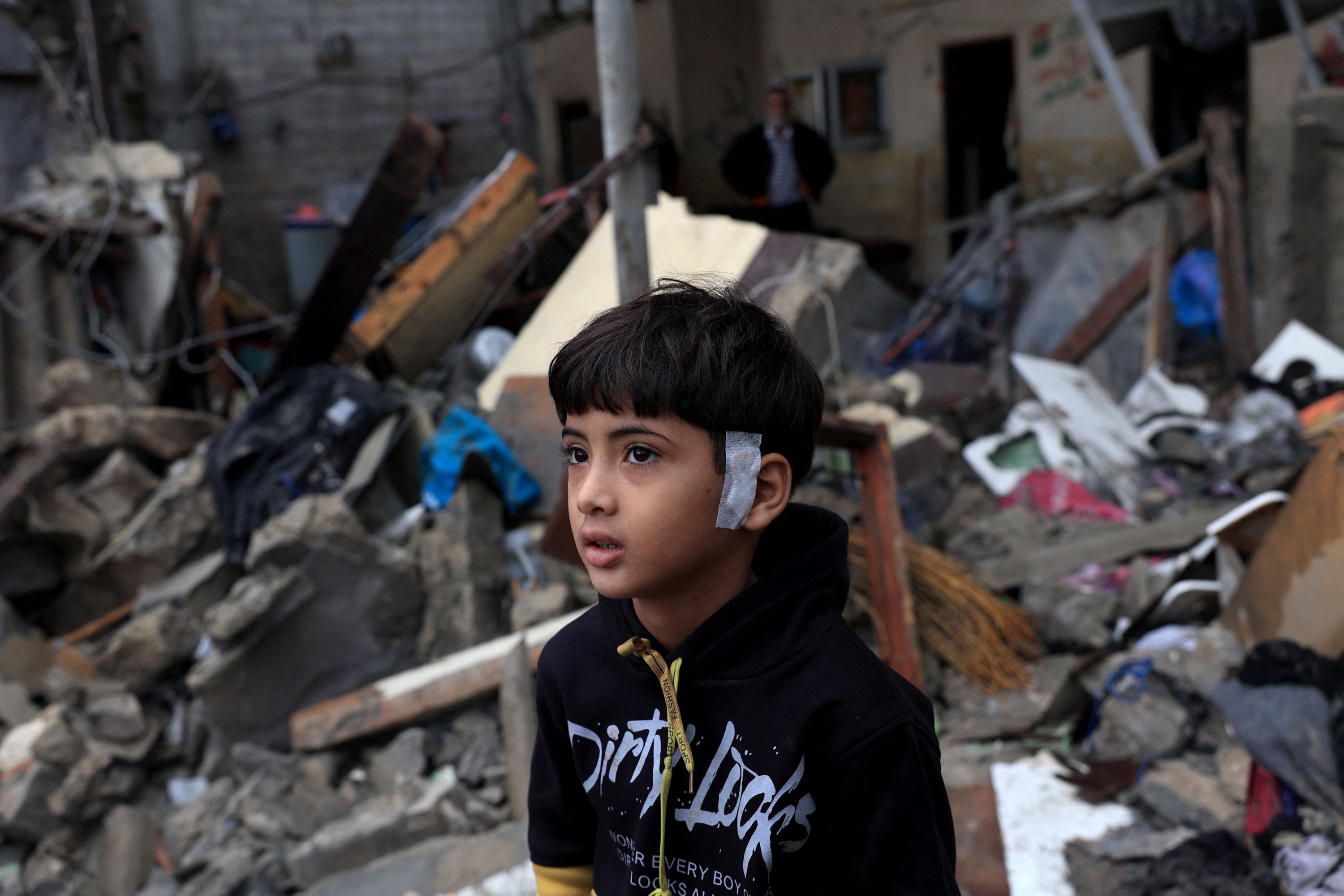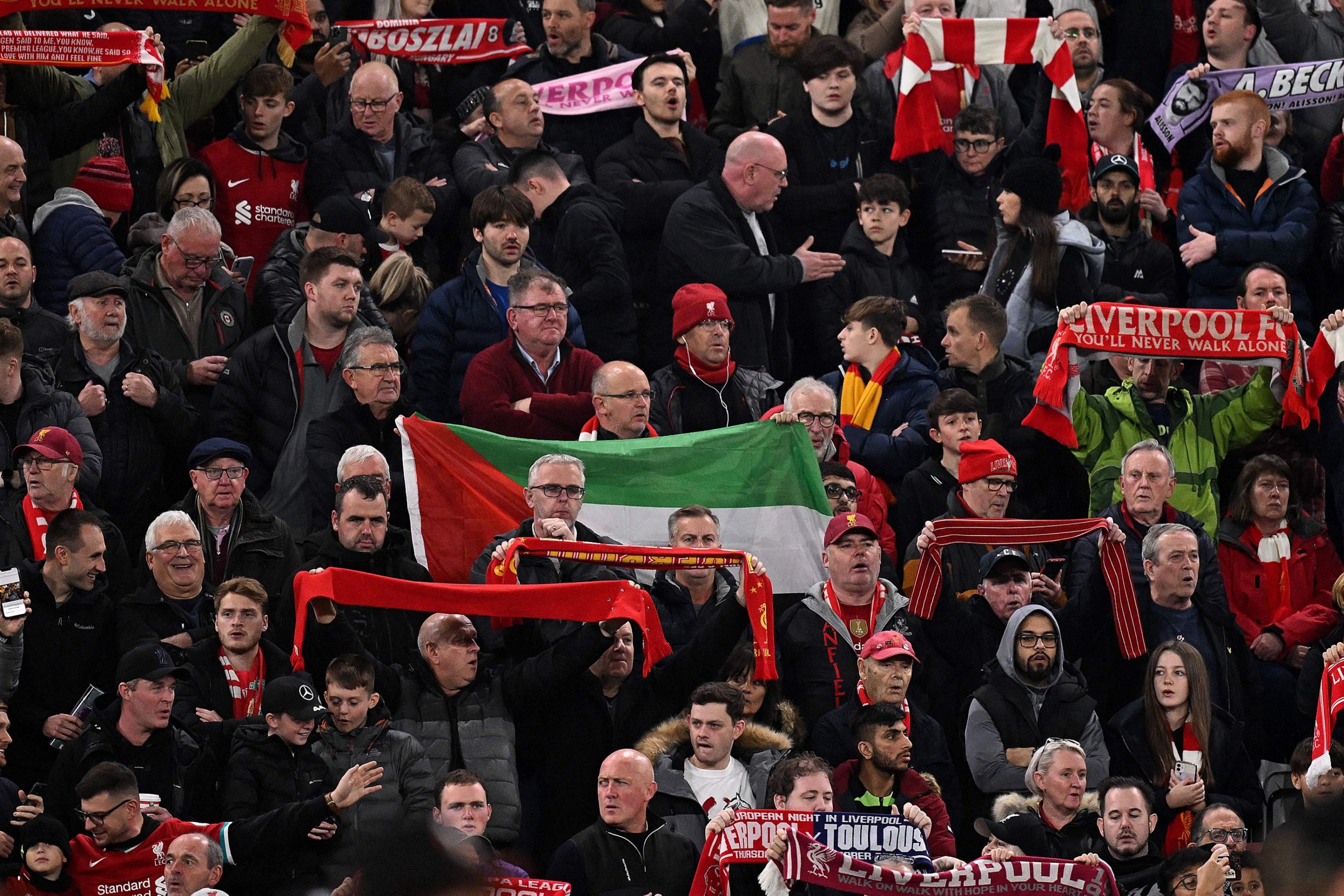© Turkuvaz Haberleşme ve Yayıncılık 2024
UEFA and FIFA, who swiftly imposed sanctions on Russia following its incursion into Ukraine starting on Feb. 24 last year, have opted for a reserved stance concerning Israel.
UEFA's inaugural statement surfaced a mere five hours after Russian President Vladimir Putin declared the military operation.
It expressed deep-seated concerns within the international community regarding Europe's security, vehemently denouncing the ongoing Russian military assault in Ukraine.
UEFA emphasized its commitment to fostering football within the Olympic spirit and Europe's core values, such as peace and respect for human rights.
By Feb. 27, the United Nations reported 64 civilian deaths and 176 injuries due to Russia's attacks in Ukraine.
Simultaneously, FIFA proclaimed that international football matches in Russia would cease, with the exclusion of the Russian flag and anthem.
The statement advocated for non-violent solutions, calling urgently for peace and constructive dialogue.
Just a day later, on Feb. 28, the fourth day of the attacks, FIFA and UEFA suspended the participation of Russian clubs and national teams in their organizations, a decision that has since kept Russian teams out of international competitions.
While these organizations acted swiftly in response to Russia, their silence on the over 11,000 lives lost in Gaza over 38 days raises questions about consistency.
Despite their prompt actions against Russia, UEFA and FIFA remained conspicuously silent regarding the ongoing attacks in Gaza, where Israel's actions led to a staggering loss of lives, including 7,000 children.

The bombing of Al-Ahli Baptist Hospital on Oct. 17, resulting in 500 casualties, failed to elicit even a message of condemnation, leaving many to question the criteria governing these football governing bodies.
In a puzzling turn, while UEFA and FIFA swiftly issued condemnation for two individuals who died in an armed attack in Brussels during the 2024 European Football Championship Qualifiers, they still opted for a moment of silence just one day before a similar incident.
This inconsistency in response further adds to the intrigue surrounding their decision-making processes.
UEFA and FIFA's stance on Israel
UEFA and FIFA took a series of steps concerning Israel.

Initially, they postponed all international matches involving Israel's national and club teams.
Subsequently, at Israel's request, these matches were relocated to other countries, with Hungary designated for the national team, Serbia for Maccabi Tel Aviv, and Greek Cyprus for Maccabi Haifa.
However, this decision seemed to overlook the impact on other teams' fixtures and local league matches.
While Israel's postponed match against Kosovo proceeded last weekend, the national match was played, with local league matches continuing unaffected.
Israel's plea for a moment of silence in the 2024 European Championship Qualifiers matches against Switzerland and Romania was granted by UEFA.
This acknowledgment of lives lost in attacks by Hamas's armed wing, the Izz ad-Din al-Qassam Brigades, on Oct. 7 will be observed during matches held in Hungary on Nov. 15 and 18.
Israeli Football Federation President Shino Zoertz, however, sparked controversy by referring to Palestinians as "human scum."
He underscored the moment of silence as a method for the Israeli National Team to draw attention to what he labeled a crime against humanity.
Despite the ongoing conflict, the Palestinian national team finds itself with two matches in a week in the 2026 World Cup qualification calendar.
Scheduled to play against Lebanon, Australia and Kuwait, there have been no announcements of postponements, highlighting the resilience and determination of the Palestinian team amid adversity.
The ban on Russian teams extended beyond football to basketball, with FIBA and ULEB emphasizing human rights, Olympic spirit, fair play and peace.
However, this stern stance was not mirrored when it came to Israeli teams in the wake of the Gaza attacks.
The European League organization's website initially expressed respect for lives lost in terrorist attacks in Israel before later revising the statement with the phrase "Due to the sad events in the Middle East."
Despite the ongoing Israeli attacks, FIBA and ULEB failed to issue any condemnation, and while Israeli basketball teams faced postponed matches, the fixtures for these teams were adjusted without significant repercussions.
The disparate treatment of Russia and Israel further emphasizes the need for transparency and consistency in the decisions of football governing bodies.
